| |
Theodor Blumer (24 Mar 1881–21 Dec 1964) studied composition under Draeseke and piano with W. Brookman at the Dresden Conservatory. In 1931 he became the conductor 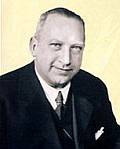 of the Dresden Radio Orchestra, and afterwards moved to Leipzig to head the MDR (Middle German Radio) Orchestra there for eleven years. He spent the rest of his life in Berlin. Blumer's compositions include music for piano, string orchestra, and mixed chamber groups. These include a piano quintet, a violin sonata, string trio, a flute sonata, four woodwind quintets, a comic opera Die Fünfuhrthee (The Five-o'Clock Tea; produced in Berlin and in Bremen in 1912) and a symphonic poem Erlösung. Some of his wind music has been recorded by Crystal Records. "Blumer’s lush, late-romantic style reminds me of Richard Strauss. [His music] is refreshing and enlightening." American Record Guide of the Dresden Radio Orchestra, and afterwards moved to Leipzig to head the MDR (Middle German Radio) Orchestra there for eleven years. He spent the rest of his life in Berlin. Blumer's compositions include music for piano, string orchestra, and mixed chamber groups. These include a piano quintet, a violin sonata, string trio, a flute sonata, four woodwind quintets, a comic opera Die Fünfuhrthee (The Five-o'Clock Tea; produced in Berlin and in Bremen in 1912) and a symphonic poem Erlösung. Some of his wind music has been recorded by Crystal Records. "Blumer’s lush, late-romantic style reminds me of Richard Strauss. [His music] is refreshing and enlightening." American Record Guide |
Paul Büttner (10 Dec 1870 - 15 Oct 1943) was  born in Dresden and was a pupil of Draeseke. He then taught in Dresden between 1896 and 1907 where he was also active as a music critic. Alfred Einstein’s states that "as a symphonist, [Büttner] has been somewhat influenced by Anton Bruckner." Büttner composed four symphonies: Nr 1 in F (1899); Nr 2 in G; Nr 3 in D-flat major (said by Einstein to be his best-known work, at least in 1924) and Nr 4 in B minor. There are various symphonic phantasies, an overture to Napoleon’s Tomb, a Heroic Overture (1927), Saturnalia for drums and wind instruments, a violin sonata, a string quartet in G minor, male choruses and two operas: Anka and Das Wunder der Isis. As a staunchly anti-Nazi Social Democrat, Büttner lost his post of artistic director of the Dresden Conservatory in 1933. After that date he gave private music lessons and took refuge in composition. After the end of the war, his name was rehabilitated by several conductors, including Joseph Keilberth, Heinz Bongartz, and Kurt Masur. His Symphony nr 4 was recorded by the East German company Eterna in 1965 with Gerhard Pflüger conducting the Berlin Radio Orchestra; this recording is now available on Sterling CD 1048 and well worth seeking out. born in Dresden and was a pupil of Draeseke. He then taught in Dresden between 1896 and 1907 where he was also active as a music critic. Alfred Einstein’s states that "as a symphonist, [Büttner] has been somewhat influenced by Anton Bruckner." Büttner composed four symphonies: Nr 1 in F (1899); Nr 2 in G; Nr 3 in D-flat major (said by Einstein to be his best-known work, at least in 1924) and Nr 4 in B minor. There are various symphonic phantasies, an overture to Napoleon’s Tomb, a Heroic Overture (1927), Saturnalia for drums and wind instruments, a violin sonata, a string quartet in G minor, male choruses and two operas: Anka and Das Wunder der Isis. As a staunchly anti-Nazi Social Democrat, Büttner lost his post of artistic director of the Dresden Conservatory in 1933. After that date he gave private music lessons and took refuge in composition. After the end of the war, his name was rehabilitated by several conductors, including Joseph Keilberth, Heinz Bongartz, and Kurt Masur. His Symphony nr 4 was recorded by the East German company Eterna in 1965 with Gerhard Pflüger conducting the Berlin Radio Orchestra; this recording is now available on Sterling CD 1048 and well worth seeking out. |
| Charles Whitney Coombs (25 Dec 1859 - 24 Jan 1940), was born in Bucksport, Maine and from 1878 lived in Stuttgart, studying piano with Speidel, theory and composition with Seifritz, and also modern languages and literature. In 1883 he was in Italy and Switzerland, and in 1884 went to Dresden, where his teachers were Draeseke for composition, Janssen for organ, Hermann John for instrumentation and Lamperti for voice. He made long visits to Paris and London and from 1887-1891 he was organist at the American Church in Dresden. He returned to the US and from 1892-1908 he was organist at the Church of the Holy Communion and at at St. Luke's in New York City. His compositions include the vocal works, various songs, hymns, and cantatas. |
Walter Damrosch (30 Jan 1862 – 22 Dec 1950), was born in Breslau, a son of the conductor Leopold Damrosch. He exhibited an interest in music at an early age and was instructed by his father in harmony and also studied under Wilhelm Albert Rischbieter and Draeseke in Dresden. He emigrated with his parents in 1871 to the United States. In 1884, when his father initiated an all-German opera series at the Metropolitan Opera, Walter was made an assistant conductor. After his father's death in 1885, he held the 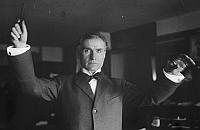 same post under Anton Seidl and also became conductor of the Oratorio and Symphony Societies in New York. Damrosch was best known as a conductor of the music of Wagner and was also a pioneer in the performance of music on the radio, and as such became one of the chief popularizers of classical music. Damrosch composed operas based on stories such as The Scarlet Letter (1896), Cyrano de Bergerac (1913), and The Man Without a Country (1937). Damrosch died in New York City in 1950. same post under Anton Seidl and also became conductor of the Oratorio and Symphony Societies in New York. Damrosch was best known as a conductor of the music of Wagner and was also a pioneer in the performance of music on the radio, and as such became one of the chief popularizers of classical music. Damrosch composed operas based on stories such as The Scarlet Letter (1896), Cyrano de Bergerac (1913), and The Man Without a Country (1937). Damrosch died in New York City in 1950. |
Alexandre Denéréaz (31 Jul 1875 - 25 Jul 1947), was born into a musical family in Lausanne and first studied the humanities before entering the Royal Conservatory of Music in Dresden at age 16 where he studied composition with Felix Draeseke. He wrote his first symphony at age 20, which was premiered in 1896 under Draeseke's direction. The same year Denereaz returned to Lausanne where he was appointed organist of the Saint-Francois Cathedral, holding this position for 51 years. An influential teacher, his students included Ernest Ansermet. He was active in Swiss musical life, contributing to the founding of the Association of Swiss Musicians in Berne and creating the musical plans for the great organs in the Lausanne Cathedral. A recording of several orchestral works is available on Gallo CD 1227. |
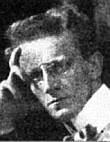 Carl Ehrenberg (5 Apr 1878 – 26 Feb 1962) was a German composer. The brother of the violinist and painter Paul Ehrenberg, Carl Ehrenberg studied at the Dresden Conservatory under Draeseke. He later worked as a Kapellmeister in Dortmund, Würzburg, Poznań, Augsburg, Metz, and Lausanne, before becoming the Kapellmeister of the Berlin State Opera in 1922. He taught at both the Musikhochschule Köln and the Musikhochschule München. Ehrenberg composed an opera, two symphonies and other orchestral works, chamber music, theater music, and songs. Carl Ehrenberg (5 Apr 1878 – 26 Feb 1962) was a German composer. The brother of the violinist and painter Paul Ehrenberg, Carl Ehrenberg studied at the Dresden Conservatory under Draeseke. He later worked as a Kapellmeister in Dortmund, Würzburg, Poznań, Augsburg, Metz, and Lausanne, before becoming the Kapellmeister of the Berlin State Opera in 1922. He taught at both the Musikhochschule Köln and the Musikhochschule München. Ehrenberg composed an opera, two symphonies and other orchestral works, chamber music, theater music, and songs. |
| Evelyn Faltis (20 Feb 1887 - 19 May 1937) was a German composer of Bohemian origin. She was educated in Paris, then studied at the Music Academy in Vienna, where her teachers included Robert Fuchs and Eusebius Mandyczewski. She then studied with Draeseke and Eduard Reus at the Dresden Conservatory, where she won a prize for her Phantastische Sinfonie (op 2a), and later with Sophie Menter in Munich. She was the first woman to coach singers at Bayreuth and became the soloists’ répétiteur at the Nuremberg Stadttheater am Ring and the Darmstadt Hoftheater and in 1924 she started work at the Berlin Städtische Oper. Her compositions include the symphonic poem Hamlet, a piano concerto, two string quartets, a number of choral works, including a Mass, and about twenty songs. |
Alberto Franchetti (18 Sep 1860 - 4 Aug 1942) first studied in Venice, then in Dresden under Draeseke, and finally at the Munich 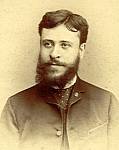 Conservatory under Rheinberger. His family’s considerable wealth (his father was an important Jewish banker and his mother a Rothschild) meant that he could devote himself entirely to music, and could ensure his works were performed in the best possible circumstances. His first major success occurred in 1888 with his opera Asrael. Martucci considered Asrael "quite extraordinary for a young man’s first opera." However, after the success of the first performances the opera never entered the repertory. His operatic style combined influences from Wagner and Meyerbeer with Italian verismo. During his life, he was sometimes referred to as "the Meyerbeer of modern Italy." The success of Asrael at La Scala led Verdi to recommend him for the task of composing the commemorative opera for the 400th anniversary of Columbus’s arrival in America, Cristoforo Colombo, which was commissioned by the city of Genoa. Franchetti’s attempt to blend the tradition of Italian grand opera with the German influences which he assimilated during his studies may seem somewhat outdated today, though recent revivals and recordings of both Cristoforo Colombo and Germania (Berlin Opera 2006/7) show his work to be of genuine quality with a fine ability in orchestration and use of the chorus, the latter symphonic in style. Conservatory under Rheinberger. His family’s considerable wealth (his father was an important Jewish banker and his mother a Rothschild) meant that he could devote himself entirely to music, and could ensure his works were performed in the best possible circumstances. His first major success occurred in 1888 with his opera Asrael. Martucci considered Asrael "quite extraordinary for a young man’s first opera." However, after the success of the first performances the opera never entered the repertory. His operatic style combined influences from Wagner and Meyerbeer with Italian verismo. During his life, he was sometimes referred to as "the Meyerbeer of modern Italy." The success of Asrael at La Scala led Verdi to recommend him for the task of composing the commemorative opera for the 400th anniversary of Columbus’s arrival in America, Cristoforo Colombo, which was commissioned by the city of Genoa. Franchetti’s attempt to blend the tradition of Italian grand opera with the German influences which he assimilated during his studies may seem somewhat outdated today, though recent revivals and recordings of both Cristoforo Colombo and Germania (Berlin Opera 2006/7) show his work to be of genuine quality with a fine ability in orchestration and use of the chorus, the latter symphonic in style. |
Felix Gotthelf (3 Oct 1857 - 1930?), was born in Munich-Gladbach and settled in Vienna at the end of the 19th Century. He was educated in medicine (Dr. med.) but also music including piano with Julius Lange and James Kwast; theory with Gustav Jensen and Otto Tiersch; singing with Paul Jensen and Karl Scheidemantel; and especially composition under Draeseke to whom Gotthelf's 1894 tone poem Ein Frühlingsfest op 7 is dedicated. He composed the Mysterium Mahadeva (A Symphonic Drama in a Prelude and Three Acts, 1909), chamber music, much vocal music and was author of several books including Das Wesen der Musik (1893) and Indische Renaissance (1911). |
 Leo Kestenberg (27 Nov 1882 - 14 Jan 1962). Israeli educationist and pianist of Hungarian birth, active mainly in Germany. After studying the piano with Kullak and Busoni and composition with Felix Draeseke, he made frequent appearances as a concert pianist and began teaching at the Stern and Klindworth-Scharwenka Conservatories in Berlin. From his student days his political and cultural activities had developed his ideas about the role of music in education and had also equipped him with the organizational experience to put them into practice. In 1918 he became musical adviser to the Prussian Ministry of Science, Culture and Education, becoming in 1922 director of the newly established music department of the Central Institute for Education and Teaching. The institute organized in May 1921 a school music week, the first of eight annual events held in different German towns, where Kestenberg’s music reforms were explained and discussed. In the same year Kestenberg’s Musikerziehung und Musikpflege was published; the thoughts expressed in this book became gradually translated into a number of government edicts which affected every aspect of music education in Prussia from kindergarten to university level and extended even to the supervision of the qualifications of private music teachers. Up to December 1932 Kestenberg was active in the Education Ministry but with the advent of Nazism he fled to Prague in 1934. There he founded and directed the International Society for Music Education, which held three congresses in the years 1936 to 1938; in 1953 he was elected the society’s honorary president. In 1938 he moved to Tel-Aviv, where he became general manager of the Palestine (now Israel Philharmonic) Orchestra. On his retirement in 1945 he concentrated his energies on teaching and founded Israel’s first training college for music teachers. Leo Kestenberg (27 Nov 1882 - 14 Jan 1962). Israeli educationist and pianist of Hungarian birth, active mainly in Germany. After studying the piano with Kullak and Busoni and composition with Felix Draeseke, he made frequent appearances as a concert pianist and began teaching at the Stern and Klindworth-Scharwenka Conservatories in Berlin. From his student days his political and cultural activities had developed his ideas about the role of music in education and had also equipped him with the organizational experience to put them into practice. In 1918 he became musical adviser to the Prussian Ministry of Science, Culture and Education, becoming in 1922 director of the newly established music department of the Central Institute for Education and Teaching. The institute organized in May 1921 a school music week, the first of eight annual events held in different German towns, where Kestenberg’s music reforms were explained and discussed. In the same year Kestenberg’s Musikerziehung und Musikpflege was published; the thoughts expressed in this book became gradually translated into a number of government edicts which affected every aspect of music education in Prussia from kindergarten to university level and extended even to the supervision of the qualifications of private music teachers. Up to December 1932 Kestenberg was active in the Education Ministry but with the advent of Nazism he fled to Prague in 1934. There he founded and directed the International Society for Music Education, which held three congresses in the years 1936 to 1938; in 1953 he was elected the society’s honorary president. In 1938 he moved to Tel-Aviv, where he became general manager of the Palestine (now Israel Philharmonic) Orchestra. On his retirement in 1945 he concentrated his energies on teaching and founded Israel’s first training college for music teachers.
|
Hermann Kutzschbach (30 Aug 1875 - 9 Feb 1938) was a German conductor whose career was principally at Dresden. The son of a music-master, he studied at Dresden 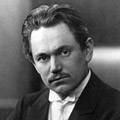 Conservatory under Adolf Kluge, Eugen Krantz and Felix Draeseke. In 1895 he became Korrepetitor at Dresden Court Theatre, and he remained there, though with short absences (notably in 1898 at Cologne and at the New Royal Opera House Berlin), until 1906. In 1898 he became 3rd conductor at Dresden, with Ernst von Schuch and Hagen. From 1906-1909 he went to Mannheim as 1st conductor, and then returned to Dresden as successor to Hagen. In 1913 he became 2nd conductor, and after Schuch's death in 1914 he acted as 1st conductor with Fritz Reiner. Later he co-operated with Fritz Busch there Conservatory under Adolf Kluge, Eugen Krantz and Felix Draeseke. In 1895 he became Korrepetitor at Dresden Court Theatre, and he remained there, though with short absences (notably in 1898 at Cologne and at the New Royal Opera House Berlin), until 1906. In 1898 he became 3rd conductor at Dresden, with Ernst von Schuch and Hagen. From 1906-1909 he went to Mannheim as 1st conductor, and then returned to Dresden as successor to Hagen. In 1913 he became 2nd conductor, and after Schuch's death in 1914 he acted as 1st conductor with Fritz Reiner. Later he co-operated with Fritz Busch there |
| Ruben Liljefors (30 Sep 1871 - 4 Mar 1936) was a Swedish composer and conductor. Liljefors studied in Uppsala with Ivar Hedenblad until 1895, and subsequently composition with Salomon Jadassohn in Leipzig and with Draeseke and Reger in Dresden, and also conducting with Kutzschbach until 1899. From 1902 to 1911, he conducted the choir and orchestra of the Gothenburg Philharmonic Society. Afterwards, he conducted the Gävleborg County Orchestra between 1912 and 1931. He is considered a technically skilled composer rooted in the Scandinavian tradition (particularly Sjögren and Grieg) and in certain respects also influenced by Brahms and Reger; his choral works and solo songs were especially admired but he also composed orchestral music including a Symphony (1906) and Piano Concerto (1899). One of his best-known pieces is the Swedish Christmas carol När det lider mot jul. |
Otto Lohse (21 Sep 1858 - 5 May 1925) was a German conductor. He studied theory with Draeseke, Rischbieter, and Kretschmer, conducting with Franz Wüllner, the cello with Grützmacher and the piano with H.J. Richter. After playing the cello at the Dresden Hoftheater (1877–9), he began his conducting career in Riga. In 1893 he became director of the Hamburg Stadttheater; while in Hamburg he married singer Katharina Klafsky. The following year Damrosch called him to New York to direct the German opera season for two years; he was at the Théâtre Municipal, Strasbourg from 1897 to 1904, during the last three years of which he also directed the Royal Opera in London. He then became director of the Cologne Opera for seven years; during that time he made guest appearances in Monte Carlo, Moscow, Paris, Brussels and London. His subsequent success as the director of the Leipzig Opera was even greater. He retired to Baden-Baden in 1923 but continued to conduct there until his death. Among his pupils was the Romanian conductor Jonel Perlea. Kohse composed an operetta Der Prinz wider Willen (1890) and many songs. |
| Ida Georgina Moberg (13 Feb 1859 - 2 Aug 1947) was a Finnish composer and conductor. After taking piano and singing lessons, she studied counterpoint with Faltin and composition with Sibelius at the Helsinki Philharmonic Orchestra School. In 1893–4 she was at the St Petersburg Conservatory and from 1901 to 1905 at the Dresden Conservatory, where she was a pupil of Draeseke. She completed her training at the Dalcroze Institute in Berlin (1911–12) and then returned to Helsinki. From 1914 she taught at the Helsinki Music Institute and conducted choirs, which sometimes performed her music. In 1906 Moberg conducted her Symphony, an Overture in A minor, Lantlig dans (Country Dance) for orchestra, and Vaknen (Awaken) for male chorus and orchestra, and in 1908 her Tyrannens natt (The Night of the Tyrant), also for male chorus and orchestra. Intermittently, and as late as 1945–6, she worked on an opera about Buddha, Asiens Ijus (The Light of Asia), based on a poem by Viktor Rydberg; although it was never completed, fragments were performed. |
| Otto zur Nedden (18 Apr 1902–?) dramaturg at the German National Theater in Weimar. Zur Nedden was active in the National Socialist Party and was known for his 1939 adaptation of Marlowe's The Jew of Malta, praised as the "best and the most representative anti-semitic work of world literature". |
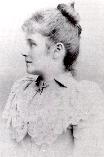 Frida Neuhaus Draeseke (1859 - 14 Nov 1942) was a student of Draeseke where she studied composition and piano. Frida Neuhaus was married to the composer on 16 May 1894 and was his wife until Felix's death in February 1913. Frida Neuhaus Draeseke (1859 - 14 Nov 1942) was a student of Draeseke where she studied composition and piano. Frida Neuhaus was married to the composer on 16 May 1894 and was his wife until Felix's death in February 1913. |
| Adelina Andrea-Perroni was the mother of the conductor and composer Volkmar Andreae (5 Jul 1879 - 18 Jun 1962) and studied in Dresden with Draeseke. Volkmar Andrea's father was the chemist, Philipp Andreae. |
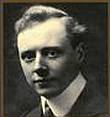 Egon Petri (23 Mar 1881 - 27 May 1962) was a German pianist and teacher of Dutch descent, later active in the USA. At the age of five he had violin lessons with his father, Henri Petri, then concert master of the Leipzig Gewandhaus Orchestra. Following the family's move to Berlin in 1889 he became a pupil of the pianist Teresa Carreño. He also studied composition and theory with Kretschmar and Draeseke. In 1905 he became a professor at the Royal Manchester College of Music and remained there until 1911, after which he returned to Berlin as Busoni's assistant. From 1921 to 1925 Petri taught at the Hochschule für Musik and pursued a busy concert schedule, with an intensive tour of Russia in 1923. He lived at Zakopane in Poland from 1925 until the outbreak of World War II. From 1940 to 1946 he was visiting professor at Cornell University, then moved to California where he was on the faculty of Mills College in Oakland. His pupils include Carl Szreter, Franz Joseph Hirt, Gunnar Johansen, Vitya Vronsky, Earl Wild, Grant Johannsen and Ernst Lévy, and John Ogdon. Egon Petri (23 Mar 1881 - 27 May 1962) was a German pianist and teacher of Dutch descent, later active in the USA. At the age of five he had violin lessons with his father, Henri Petri, then concert master of the Leipzig Gewandhaus Orchestra. Following the family's move to Berlin in 1889 he became a pupil of the pianist Teresa Carreño. He also studied composition and theory with Kretschmar and Draeseke. In 1905 he became a professor at the Royal Manchester College of Music and remained there until 1911, after which he returned to Berlin as Busoni's assistant. From 1921 to 1925 Petri taught at the Hochschule für Musik and pursued a busy concert schedule, with an intensive tour of Russia in 1923. He lived at Zakopane in Poland from 1925 until the outbreak of World War II. From 1940 to 1946 he was visiting professor at Cornell University, then moved to California where he was on the faculty of Mills College in Oakland. His pupils include Carl Szreter, Franz Joseph Hirt, Gunnar Johansen, Vitya Vronsky, Earl Wild, Grant Johannsen and Ernst Lévy, and John Ogdon.
|
| Adrian Rappoldi (13 Sep 1876 - 1949?). Violinist, son of Eduard Rappoldi and Laura Rappoldi. He studied the violin with his father and composition with Felix Draeseke at the Dresden Conservatory, where he won first prize at the age of 14. In 1893 he became leader of the Bilse orchestra in Berlin; there he spent much time in the company of Joachim, who gave him the warmest of testimonials when he left (1894). After recovering from a serious hand ailment, Rappoldi was leader of the orchestras in Chemnitz, in Teplitz, at the German Theatre in Prague, and in Riga. Intermittent tours took him to Germany, Norway, and Russia, where he appeared with Brahms, Grieg and Rimsky-Korsakov. In 1912 he succeeded Henri Petri as professor of the violin at the Dresden Conservatory, and from 1915 he was one of its directors. He continued to make solo appearances, but his reputation in Dresden was based primarily on his teaching ability and chamber music playing. He wrote a treatise on violin player's cramp and the origin, treatment and cure of occupational maladies of the violinist; he also co-edited a volume of orchestral studies for the violin. |
| Theodor Röhmeyer (1869-1944), theater and music director in Pforzheim. It was Röhmeyer who requested Draeseke to write his second viola sonata as a present for Hermann Ritter. |
Percy Sherwood (23 May 1866 - June 1939) was an Anglo-German composer and pianist born in Dresden. His father, John Sherwood, was an English university lecturer in Dresden, and his mother, Auguste Koch, was a German singer. Sherwood studied piano and composition at the Dresden Conservatory (1885–8) with Felix Draeseke and Theodor Kirchner, and in 1889 he was awarded the Mendelssohn Prize for a Requiem for solo voices and orchestra. He was appointed a teacher at the Dresden Conservatory in 1893, and professor in 1911. He made a name for himself as a pianist, composer and lecturer/teacher in Germany; he specialized in the piano sonatas of Beethoven, all thirty-two of which he could play by heart. The Villa Sherwood in Dresden was apparently a centre of musical life and hospitality. He and his wife moved to Hampstead, London where they found themselves at the outbreak of war in 1914 (whether by accident or design is unclear). After World War I, Sherwood continued to compose and seems to have earned a living by giving private lessons in piano, harmony, and counterpoint, advertising himself as visiting Oxford and Cambridge weekly. Sherwood’s compositions include five symphonies (two of which are lost) and several concerti, including two each for piano and cello, one for violin (dedicated to Marie Hall), and a double concerto for violin and cello. He also wrote a considerable amount of chamber music. In general his music belongs to the German tradition of his time; his Third Symphony gives evidence of a first-class, professional composer, using the harmonic vocabulary of the period with its Wagnerian overtones, but also showing a certain reserve. A collection of about 40 autograph manuscripts by Sherwood (also copyist’s full scores of his Requiem and Piano Quintet) was deposited in the Bodleian Library, Oxford in 1978, allowing a reassessment of his work. |
| Johannes Smith (27 Jan 1869-?) was born in Arnheim and received his first Cello instruction in Maestricht, where his father had been placed in the Dutch service. Later on the Smith family resided in Amsterdam and there Ernest Appy was his teacher. In 1883 Smith went to Dresden in order to complete his training on the Violoncello under Friedrich Grützmacher and, in theory, under Felix Draeseke. Smith appeared with great success in Leipzig, Dresden, Berlin, and the Hague, as concert player and was a member of the Roth Trio at the turn of the Century. |
 Hermann Stephani (23 Jun 1877-3 Dec 1960) was a German musicologist and composer. He studied with Draeseke and was a founder of the original Draeseke Gesellschaft. Stephani was professor of Music at Marburg University and started the Music Research Institute in Marburg in 1927. Hermann Stephani (23 Jun 1877-3 Dec 1960) was a German musicologist and composer. He studied with Draeseke and was a founder of the original Draeseke Gesellschaft. Stephani was professor of Music at Marburg University and started the Music Research Institute in Marburg in 1927. |
 Nikolai von Struve {Nikolay Gustavovich Struve} (1876–1920) was a Russian-born musician and composer. A student of Draeseke's and friend of the Dresden-based artist Robert Sterl. Struve befriended Rachmaninoff during the latter's three-year residency in Dresden and was the dedicatee of the more famous composer's Isle of the Dead... "Herrn Nicolas von Struve freundschaftlich gewidmet." Struve was a member, and later director, of the editorial board of Koussevitzky‘s Editions Russes de Musique. Nikolai von Struve {Nikolay Gustavovich Struve} (1876–1920) was a Russian-born musician and composer. A student of Draeseke's and friend of the Dresden-based artist Robert Sterl. Struve befriended Rachmaninoff during the latter's three-year residency in Dresden and was the dedicatee of the more famous composer's Isle of the Dead... "Herrn Nicolas von Struve freundschaftlich gewidmet." Struve was a member, and later director, of the editorial board of Koussevitzky‘s Editions Russes de Musique. |
Kurt Striegler (7 Jan 1886-4 Aug 1958) was a German conductor and composer. He attended the choir school of the Catholic Hofkirche in Dresden from 1896 to 1900, and from 1900 to 1905 he studied composition with Draeseke and conducting with Kutzschbach at the Dresden Conservatory. In 1905 he was engaged at the Dresden Staatsoper with which he remained associated for 50 years, first as Kapellmeister from 1913, and later deputy director of the opera and  Kapellmeister of the state of Saxony. He also taught at the Dresden Conservatory (1905–45), was its artistic director (1933–6) and was artistic director of the opera school (1936–45). In 1950 Striegler moved to Munich, though he remained permanent guest conductor of the Dresden Staatsoper and was made an honorary member in 1955. He worked as a freelance conductor for Bavarian Radio in Munich, and was engaged by the Bayreuth Festival in 1951. Striegler composed operas, orchestral and chamber works, as well as songs, choral and organ compositions. Stylistically his music was in the late Romantic tradition of Strauss and Pfitzner and enjoyed limited exposure even in his native Dresden. He may be best remembered in a rather negative light, as a result of his refusal to lend support to his conducting colleague Fritz Busch when Busch was under fire from the Nazis during the Third Reich. Kapellmeister of the state of Saxony. He also taught at the Dresden Conservatory (1905–45), was its artistic director (1933–6) and was artistic director of the opera school (1936–45). In 1950 Striegler moved to Munich, though he remained permanent guest conductor of the Dresden Staatsoper and was made an honorary member in 1955. He worked as a freelance conductor for Bavarian Radio in Munich, and was engaged by the Bayreuth Festival in 1951. Striegler composed operas, orchestral and chamber works, as well as songs, choral and organ compositions. Stylistically his music was in the late Romantic tradition of Strauss and Pfitzner and enjoyed limited exposure even in his native Dresden. He may be best remembered in a rather negative light, as a result of his refusal to lend support to his conducting colleague Fritz Busch when Busch was under fire from the Nazis during the Third Reich. |
| Tekla Griebel Wandall (26 Feb 1866 - 28 Jun 1940) was a Danish composer and pianist. From the age of six she was taught the piano by her father, Theodor Griebel. In 1885 she decided to become an opera composer and prepared herself for the entrance examination at the Kongelige Danske Musikkonservatorium in Copenhagen, where she studied singing, the piano and music theory. In 1896 she studied instrumentation with Draeseke in Dresden. Thereafter her opportunities for composing became fairly restricted: after her mother’s death in 1891 she took over the household and when in 1902 she married the aging theologian Frederik Wandall, by whom she had a child, and she had to support the family by giving music lessons. She acquired a benefactor in the music publisher Henrik Hennings, who published some of her music and, in 1894, arranged a performance of her opera Skøn Karen (Schön Karin) in Breslau (Wrocław) and the opera was given at the Kongelige Teater in Copenhagen in 1899. In all, she composed some 115 works, of which about 20 are published. She wrote on music theory: En epokegjørende Opfindelse paa Stryge-Musikens Omraade (An Epoch-Making Discovery in the String Music Field; Copenhagen, 1886), Musikteori i korte Traek: Hjaelpemiddel ved Sangundervisningen (Music Theory in Brief: an Aid to Teaching Singing; Copenhagen, 1900) and Tonernes Mikrokosmos (unpublished); she also wrote poems, short stories, and Rigmor Vording (1915), a quasi-autobiography. |
|